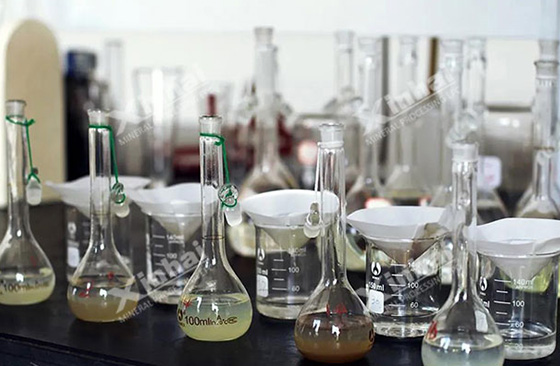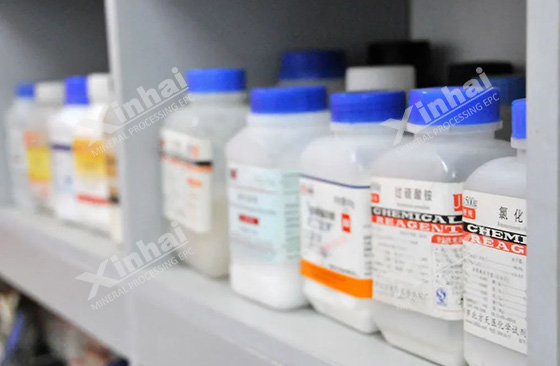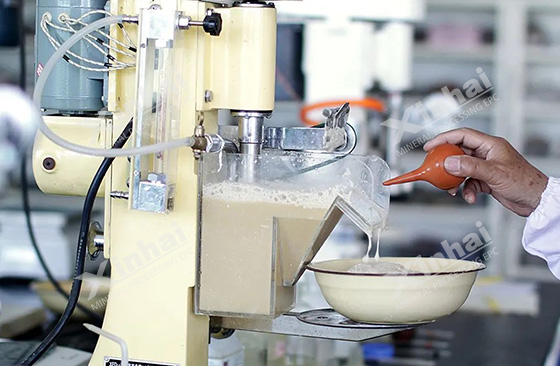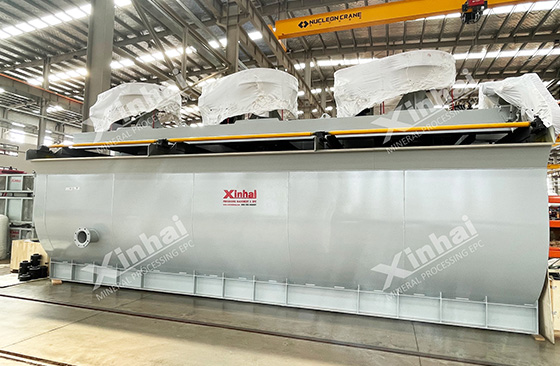
In the flotation process, the pharmaceutical system is an important part and has an important impact on the flotation indicators. The pharmaceutical system mainly includes the type and quantity of pharmaceuticals, pharmaceutical preparation method, dosing location, dosing sequence, dosing method, etc. The following will introduce you to the impact of the pharmaceutical system on the flotation process.

The type and quantity of chemicals added during the flotation process need to be determined through ore selectivity tests and verified in flotation practice. The type and dosage of chemicals should be appropriate. Excess or deficiency will seriously affect the flotation index. Within the appropriate range, increasing the dosage of collector and frother can improve flotation speed, concentrate recovery rate and concentrate quality. However, as the dosage increases, the recovery rate and quality of the concentrate will decrease. Inhibitors and activators should also be added in appropriate amounts. In production practice, mixed medications are widely used. The mixed use of various collectors needs to be determined based on the unevenness of the mineral surface and the synergistic effect between the agents. The main methods are as follows:

(1) Mixed use of agents from same series: low-grade xanthate and high-grade xanthate are shared. Mixtures of different xanthate can improve the collection power and selectivity of the agent.
(2) Mixed use of similar agents: the sharing of various sulfide ore collectors, such as the mixing of strong and weak collection agents, the mixing of soluble and insoluble agents, etc.
(3) Sharing of cationic and anionic collectors: cationic agents are first adsorbed on the surface of negatively charged minerals, which facilitates the adsorption of anionic agents.
Different dispensing methods will be used for different types of pharmaceuticals. For pharmaceuticals that are easily soluble in water, such as xanthate, copper sulfate, and soda, it is generally necessary to prepare a 5%-10% aqueous solution. For pharmaceuticals that are difficult to dissolve, such as oxidized paraffin soap and tar oil, etc. For water-soluble fatty acid pharmaceuticals, it is necessary to heat and add about 10% of the total dosage of sodium carbonate to saponify them. When the agent is added to the slurry, the temperature of the agent solution needs to be maintained within the range of 60-70℃. When using fatty acid collectors, use kerosene or diesel together. First dissolve the fatty acid in kerosene or diesel to emulsify it, and then add the emulsion. Amine collectors generally need to be prepared into an acetate or hydrochloride solution and then added. Lime needs to be added in the form of lime milk. Oily agents can be added directly.

Medication addition is mainly reflected in three aspects: dosing sequence, dosing method and dosing location.
(1) Dosing sequence: Generally, the adding sequence is: pH adjuster - activator or inhibitor - collector - foaming agent, but it also needs to be adjusted according to the actual situation.
(2) Dosing method: It can be divided into two types: one-time centralized dosing and batch dosing. One-time concentrated dosing is beneficial to increase the initial flotation speed in the flotation process. For agents that are easily soluble, difficult to be taken away by foam machinery, and difficult to fail in the slurry, a one-time centralized dosing method is generally used. For pharmaceuticals and fatty acid collectors that are easily taken away by foam, pharmaceuticals that are easy to react in the slurry, and pharmaceuticals that have the opposite effect when overdosed, choose to add drugs in batches.
(3) Dosing location: It needs to be determined according to the nature of the agent and the length of action. Generally, pH adjusters and inhibitors are added to the ball mill to make them fully effective. The easily soluble collector is added to the agitation tank before flotation, the insoluble agent is added to the ball mill, and the activator and foaming agent are generally added to the agitation tank.

The above content is a brief introduction to the impact of the chemical system on the flotation process. The chemical system is an important factor affecting the flotation effect and can directly affect the flotation index. Therefore, it is necessary to conduct mineral processing test analysis before flotation, determine a reasonable chemical system, and improve flotation mineral processing indicators and economic benefits of the processing plant.
To find out more about our products and solutions, please fill out the form below and one of our experts will get back to you shortly.